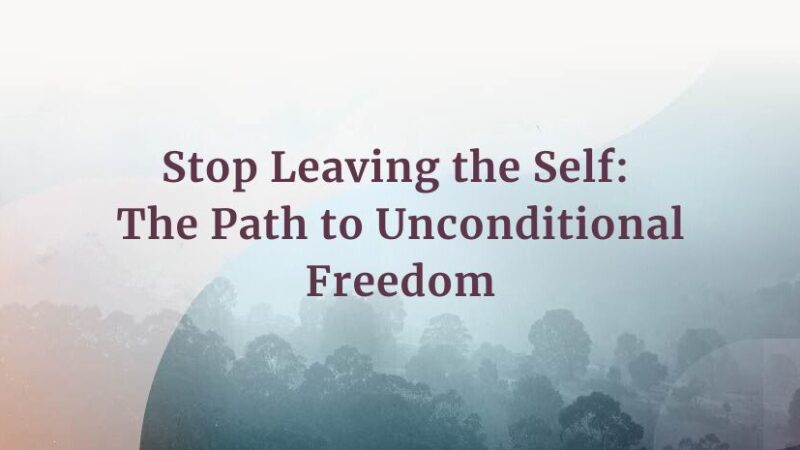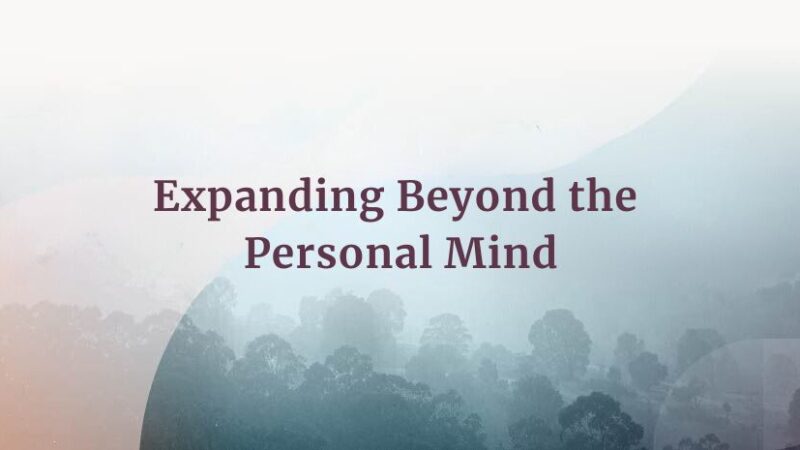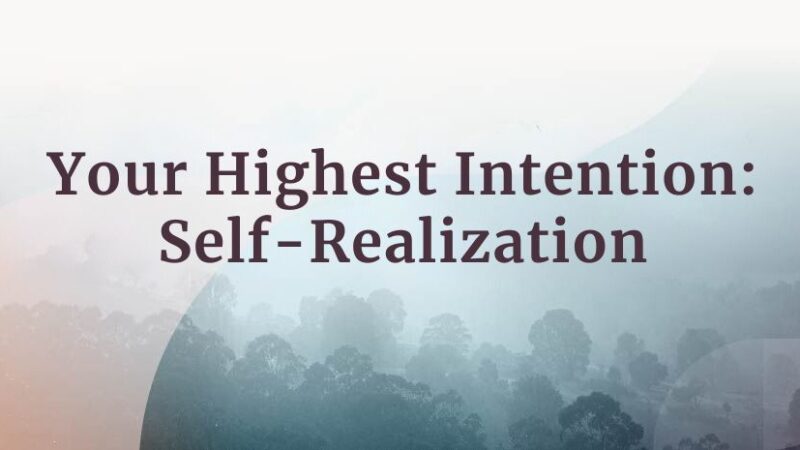-
E117: The Real Work: Letting Go from Within
Michael Singer — October 2, 2025
True spirituality isn’t about mystical experiences or lofty ideals—it’s about honestly facing...
-
Once More: Reflections on Reincarnation and the Gap Between Lives
Tami Simon — September 26, 2025
In this special reflection episode of Insights at the Edge host Tami Simon looks back on her...
-
Honey Tasting Meditation: Build Your Relationship with Sweetness
There is a saying that goes “hurt people hurt people.” I believe this to be true. We have been...
Written by:
Amy Burtaine, Michelle Cassandra Johnson
-
Many Voices, One Journey
The Sounds True Blog
Insights, reflections, and practices from Sounds True teachers, authors, staff, and more. Have a look—to find some inspiration and wisdom for uplifting your day.
Standing Together, and Stepping Up
Written By:
Tami Simon -
The Michael Singer Podcast
Your Highest Intention: Self-Realization
Michael Singer discusses intention—"perhaps the deepest thing we can talk about"—and the path to self-realization.
This Week:
E116: Doing the Best You Can: The Path to Liberation -
Many Voices, One Journey
The Sounds True Blog
Insights, reflections, and practices from Sounds True teachers, authors, staff, and more. Have a look—to find some inspiration and wisdom for uplifting your day.
Take Your Inner Child on Playdates
Written By:
Megan Sherer
600 Podcasts and Counting...
Subscribe to Insights at the Edge to hear all of Tami's interviews (transcripts available, too!), featuring Eckhart Tolle, Caroline Myss, Tara Brach, Jack Kornfield, Adyashanti, and many more.
Most Recent
E82: Stop Leaving the Self: The Path to Unconditional ...
Most people must constantly manage their thoughts, emotions, and outer conditions to avoid discomfort. The deeper path through life is to realize that there is a place of great beauty and peace inside that transcends all outer turmoil. This is the seat of Self. Spiritual growth means learning how to become established in the Self by relaxing through all inner and outer disturbances, and returning to a state of absolute, unconditional well-being.
For more information, go to michaelsingerpodcast.com.
© Sounds True Inc. Episodes: © 2025 Michael A. Singer. All Rights Reserved.
E81: Expanding Beyond the Personal Mind
The mind is not inherently a problem—it becomes one when used to narrowly define reality based on our extremely limited personal experiences. This limited frame of reference leads to suffering, judgment, and a compulsive need to control life to match our preferences. Spiritual freedom comes from recognizing the vastness of existence, surrendering the egoic mind, and appreciating the miraculous nature of reality as it is.
For more information, go to michaelsingerpodcast.com.
© Sounds True Inc. Episodes: © 2025 Michael A. Singer. All Rights Reserved.
Zach Leary: Psychedelics in the 21st Century and How t...
He’s the son of Timothy Leary and one of today’s leading voices in the psychedelic renaissance of the 21st century. But Zach Leary’s journey hardly unfolded in the way you might expect. In this deeply informative and myth-busting podcast, Tami Simon speaks with Zach about his new book with Sounds True, Your Extraordinary Mind.
With a “friend to friend” approach to discussing the amazing potential for the safe use of psychedelics, Tami and Zach converse about: carrying forward the legacy of the front-runners of psychedelic exploration, including icons like Terence McKenna, Humphry Osmond, Dr. John C. Lilly, and of course, Zach’s father Timothy and Richard Alpert (Ram Dass); acknowledging the mistakes of the past and dispelling the myths and misconceptions about psychedelics; bringing legitimacy to the use of psychedelics for healing and insight; a review of the major compounds and their sources (natural and manmade), such as MDMA, psilocybin mushrooms, ayahuasca, LSD, and ketamine; the importance of the 3 S’s: set, setting, and sustainability; turning insights into action; challenging experiences (instead of “bad trips”); Carl Jung and shadow work; using psychedelics to overcome our fear of death; Zach’s personal battle with addiction and how psychedelics supported his recovery; the nature of consciousness; psychedelics as humanity’s evolutionary partner; and more.
Note: This episode originally aired on Sounds True One, where these special episodes of Insights at the Edge are available to watch live on video and with exclusive access to Q&As with our guests. Learn more at join.soundstrue.com.
Customer Favorites
No Bad Parts
Richard “Dick” Schwartz earned his PhD in marriage and family therapy from Purdue University. He coauthored the most widely used family therapy text in the United States, Family Therapy: Concepts and Methods, and is the creator of the Internal Family Systems Model, which he developed in response to clients’ descriptions of various “parts” within themselves. With Sounds True, Dick has written a new book titled No Bad Parts: Healing Trauma and Restoring Wholeness with the Internal Family Systems Model. In this episode of Insights at the Edge, Tami Simon talks to Dick about the transformation that occurs when we welcome every part of who we are. He explains that even our most destructive parts have protective intentions, put in place to shield us from unprocessed pain, and details his method for accessing and mending these inner wounds. They also discuss the myth of the “mono mind,” and why the mind is naturally multiple; how “exiled” trauma can manifest as bodily pain; connecting with our core Self and letting it lead us in our healing; and how the language of “parts” can be useful in our relationship dynamics.
S1 E5: Your Highest Intention: Self-Realization
Have you ever pushed a thought aside or stuffed an emotion away deep inside? Most of us have! Michael Singer teaches that this is an act of will stemming from a simple intention: to feel better. In this podcast, he discusses the incredible power of our human will and how we use it, (for better or worse) in this deep exploration of intention and the pathway to self-realization and spiritual freedom.
For more information, go to michaelsingerpodcast.com.
© Sounds True Inc. Episodes: © 2024 Michael A. Singer. All Rights Reserved.
Tahini Chocolate Chunk Blondies
Tahini Chocolate Chunk Blondies
From the book, Whole Girl by Sadie Radinsky
INGREDIENTS:
- 1 large egg
- 1 cup tahini
- 1/4 cup coconut sugar
- 3 Tbsp pure maple syrup
- 1 tsp vanilla extract
- 3/4 tsp baking soda
- 1/4 tsp sea salt
- 1/2 cup chopped dark chocolate
- 1/2 tsp flaky sea salt (optional)
- Preheat your oven to 350F and line the bottom and sides of an 8 x 8-inch baking dish with parchment paper.
- In a large bowl, whisk together the egg and tahini just until combined. Whisk in the coconut sugar, maple syrup, vanilla extract, baking soda, and sea salt. Do not overmix. Gently fold in the chopped dark chocolate.
- Scoop the batter evenly into the prepared baking dish. Bake the blondies for 16 to 20 minutes, or until they’re golden brown and the center is just cooked through. Sprinkle the top with flaky sea salt, if using.
- Let the blondies cool for 10 minutes. Slice them into 9 large squares or 16 smaller squares and serve. Store leftovers in an airtight container at room temperature for up to 3 days, or in the refrigerator for up to 2 weeks.

This recipe is featured in the young adult book, Whole Girl: Live Vibrantly, Love Your Entire Self, and Make Friends with Food by Sadie Radinsky.
 Sadie Radinsky is a 19-year-old blogger and recipe creator. For over six years, she has touched the lives of girls and women worldwide with her award-winning website, wholegirl.com, where she shares paleo treat recipes and advice for living an empowered life. She has published articles and recipes in national magazines and other platforms, including Paleo, Shape, Justine, mindbodygreen, and The Primal Kitchen Cookbook. She lives in the mountains of Los Angeles. For more, visit wholegirl.com.
Sadie Radinsky is a 19-year-old blogger and recipe creator. For over six years, she has touched the lives of girls and women worldwide with her award-winning website, wholegirl.com, where she shares paleo treat recipes and advice for living an empowered life. She has published articles and recipes in national magazines and other platforms, including Paleo, Shape, Justine, mindbodygreen, and The Primal Kitchen Cookbook. She lives in the mountains of Los Angeles. For more, visit wholegirl.com.

Sounds True | Amazon | Barnes & Noble | Bookshop | Indiebound






